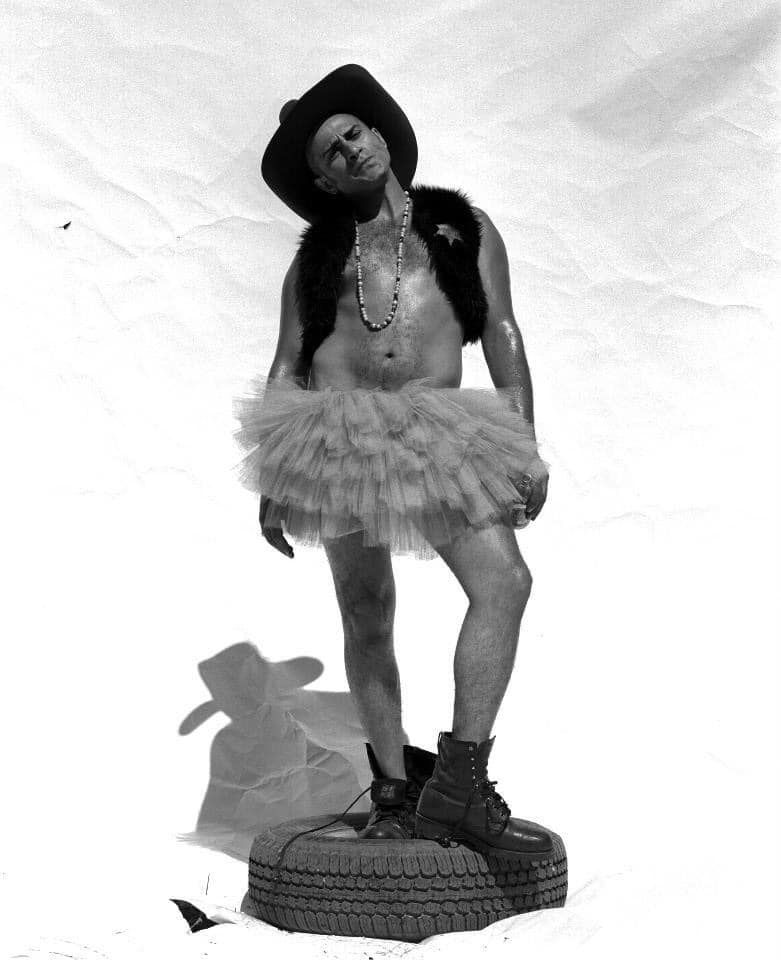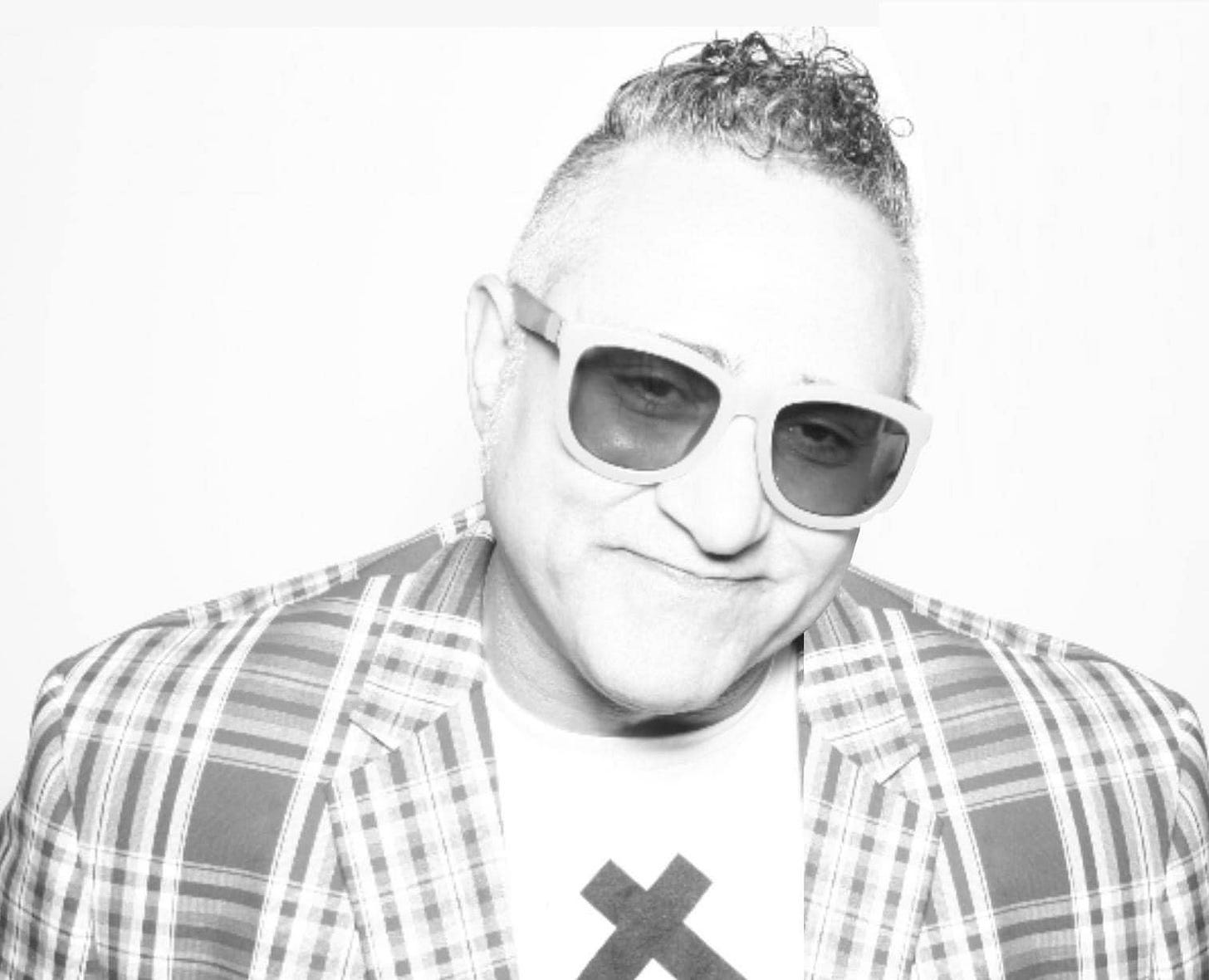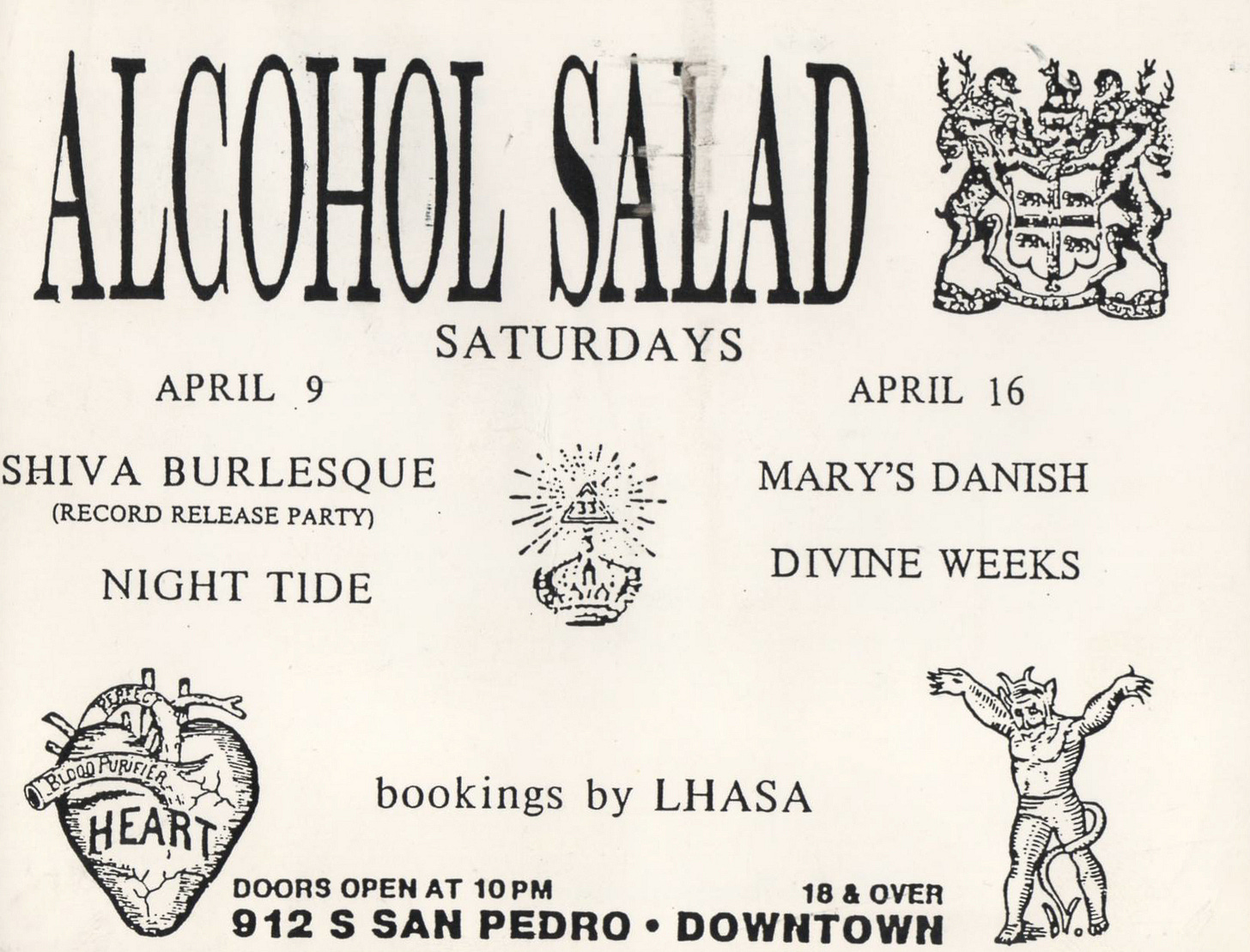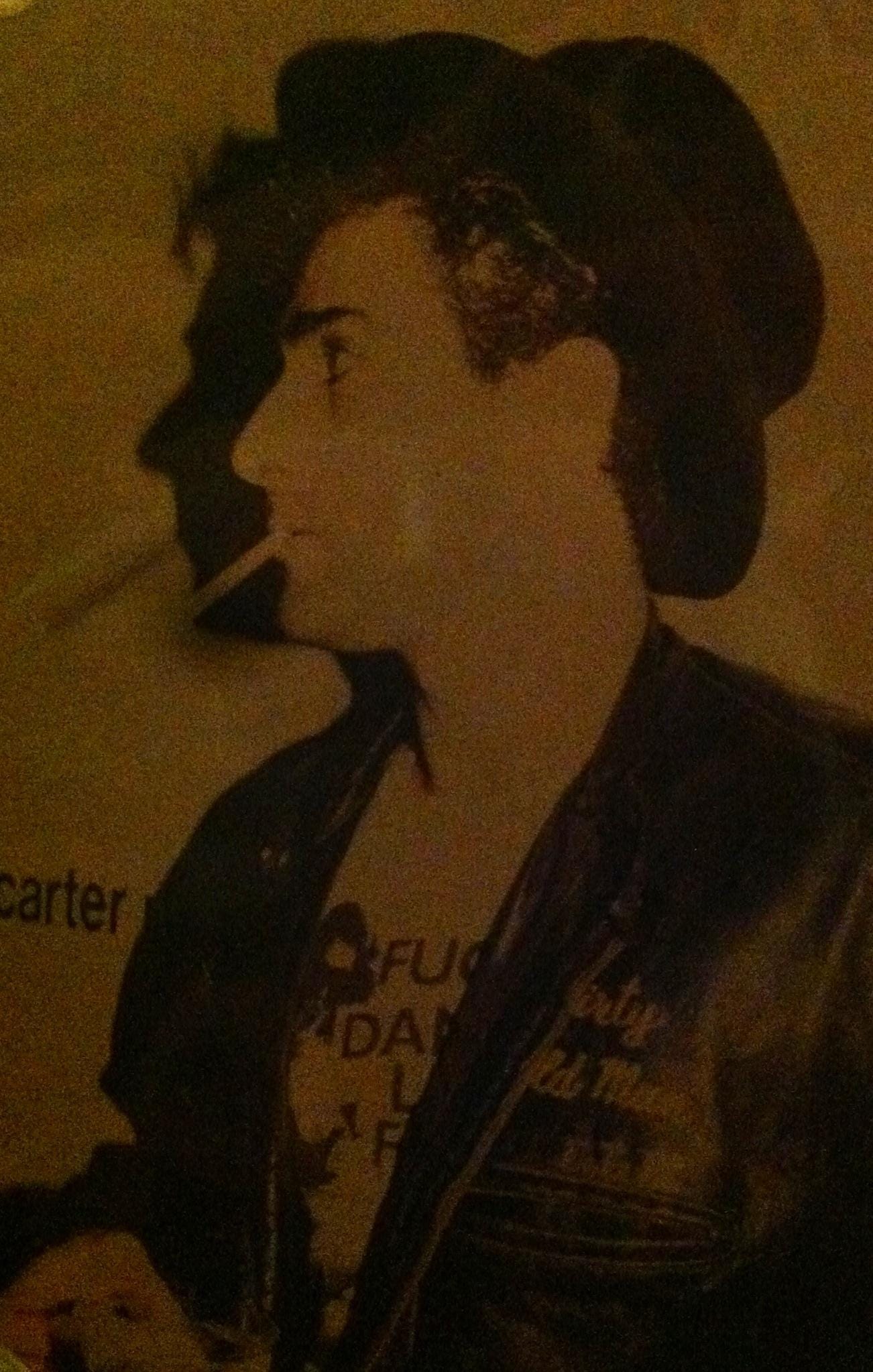A Dedication to Solomon Mansoor
Remembering the architect of LA's underground club renaissance
Solomon Mansoor is an LA legend. Though the name won’t ring a bell to most, to many of us, he was an underground hero. Mansoor was the benevolent godfather of LA’s underground club culture in the eighties and early nineties.
As it moved from the manufactured sheen of Hollywood to Downtown LA and warehouses beyond, the LA scene needed leaders like Mansoor. He was iconic and charismatic and had a soft-spoken confidence that inspired a generation of promoters, DJs, and club kids. Myself included.
Mansoor died suddenly this week, leaving a huge hole in many inspired by his life and work. Friends poured into his Facebook page to reminisce or express shock and admiration. They shared photos and memories, each post a reminder of how unpredictable and unfair life can be.
I hadn’t spoken to or seen him in years, but Solomon was a cornerstone in the culture I came up in. All of us are part of a scene, a culture, or a community somewhere, no matter how small or in what corner of the world. For me, I latched onto a loose-knit family of West Coast underground creators who lit the earliest fires of a culture that continues to burn bright. The Los Angeles community that also helped birth the US rave scene was a special brew, and Mansoor was one of its most notable protagonists.
None of us were the first to do the things we became known for. Club culture was hardly new in 1990 when URB was born. But we brought something novel to the moment, which is all it takes to tip the dominoes into cascading forward. Solomon did it with his English- and punk-inspired speakeasies like Dirt Box, Egg Salad, and his warehouse rave series, OAP (One Almighty Party).
I have cloudy but fond memories of his avant-garde Alcohol Salad on Saturdays, a spin-off of Egg Salad. Held deep in downtown, this was some of my earliest exposure to the elusive culture I’d adopt as my own. I was a curious newbie, and URB wasn’t yet an idea. Undergrounds slowly took root in the late eighties, led by veterans like Mansoor and his allies.
This was a foundational era of innovation and eclecticism for a small, committed army of nightlife pioneers. Operating without the Internet necessitated personal interactions such as handing out physical club flyers. Participants seemed to know each other, and the scene was still tiny.
Some, like Mansoor, had become hosts and conduits to this brave new world. Coupled with the good fortune of arriving on the scene early, they were gifted with the ability to light a path where none existed. They provided a space for a fledgling community to gather and dazzled us with experiences that changed how we saw our world.
I can’t remember the last funeral I attended, but I read eulogies on Instagram and Facebook constantly. Some hit close to home, like the loss of an aging parent. Others, by mere acquaintances, are so moving I find myself grieving like I would for a close friend. I sometimes wonder if the universality of our social mourning brings us closer.
Social media memorials have become part of the wider culture. We find ourselves reading about lives, loss, and legacies, often about people we’ve never met. But where there’s a deeper connection built on a shared history, the degrees of separation shrink, and the grief is communal.
For whatever reason, the cause of death is always the first thing I wonder about when I see these sad updates. Were they sick? Was it some untreatable disease? Was there an accident? And, as it is too often, was there mental illness? As I write this, it’s not been made public what happened to our beloved Solomon. And in many ways, the outcome is the same.
When we lose someone who has been part of our story, it forces us to reflect. We remember how grateful we are to them. We’re thankful that we were able to tell them so. We’re reminded that nobody is eternal. And that time is precious. We long to say the things we didn’t make time to.
We remember how they turned us on to something incredible, even if only once. Sometimes, one almighty party is all it takes. We are attached to the loss through lived and shared experiences. The digital homage from Solomon’s friends and admirers is a testament to that.
I’ve never been one for traditional prayers, but the Jewish Kaddish ritual of remembrance and reflection, especially within a group, has been therapeutic. Just reciting the impact of a life and honoring it publicly provides a home for grief. It’s the ancient version of the string of heartfelt posts in Solomon’s timeline. “Generous,” brilliant,” “contrarian,” “creative,” “genius.” He was all those things.
Often, it’s in the end that this becomes clear: Tell the people who’ve changed your life that they have and how. And then remind them. It might even be exactly what they need to hear. Just remember that the time to do this has an expiration date. If our dear friend Solomon could see his Facebook page, he’d know how much he gave to us and how he is missed. May his memory be a blessing.
Do you have a story or memory of Solomon Mansoor or his legacy? Has somebody passed recently who profoundly impacted your life in music or culture? Please leave a comment below.










Solomon was the owner of The Gaslight bar in Hollywood. On weekends they would have the somewhat typical Hollywood crowd, with the DJ playing all the House music, and Hip Hop hits. In 1992 my music partner DJ Tomas and myself approached Solomon to see if he had a night available for us to promote and DJ a night of music that was more of an urban alternative to the popular top 40 music of the time.. Solomon gave us Monday nights at The Gaslight and this became The "Umoja Jazz and Ragga lounge" (Umoja being the word for Unity in the 7 days of Kwanzaa). Tomas was heavy into Reggae, and I was the Acid Jazz/Hip Hop guy. We weren't the most popular DJ's at the time but we would bring in a crowd of people that were into the whole Hip Hop thing. We linked up with a couple of clothing brands "555 Soul", and "Funkeesentials" as well as an up and coming Hip Hop Zine (that wasn't URB magazine, sorry Raymond lol). It was a a called "Straight From The Lip". We all ended up working together and bringing some heavy hitting New York DJ's to spin guest sets at the Umoja Jazz and Ragga Lounge. Funkmaster Flex, and DJ Stretch Armstrong most notably. But back to my story about Solomon. His bar The Gaslight didn't make much money from our nights, bur every time I'd set up and play a set there, he said he always dug the music we were playing and that was reason enough for him to offer us a Monday night. Solomon you will be missed.
Sincerely,
DJ Daz - Umoja Hi Fi
I worked as his publicist at Moonshine, and got his band the Zen Cowboys a tour supporting Modern English. I've always thought the band should have been HUGE. Still feel their album Electric Mistress is the one that got away, and that Mad World should have hit the charts. I still listen to their music, and that album — and to this day count it as one of my all-time faves. I only wish they'd performed in the era of the iPhone, so I'd have video of their incredible performances. As it is, right now, I'm replaying their mind-blowing performance of "Rise" at the House of Blues in my head. On a personal note, working with Solly and all of the Zen Cowboys (and Cowgirls), and the incredible community that supported them, was such a beautiful and wild ride. I have nothing but wonderful memories of riding with this magical band of outlaws. It was an honor and a privilege to know you Solly. XoX